


































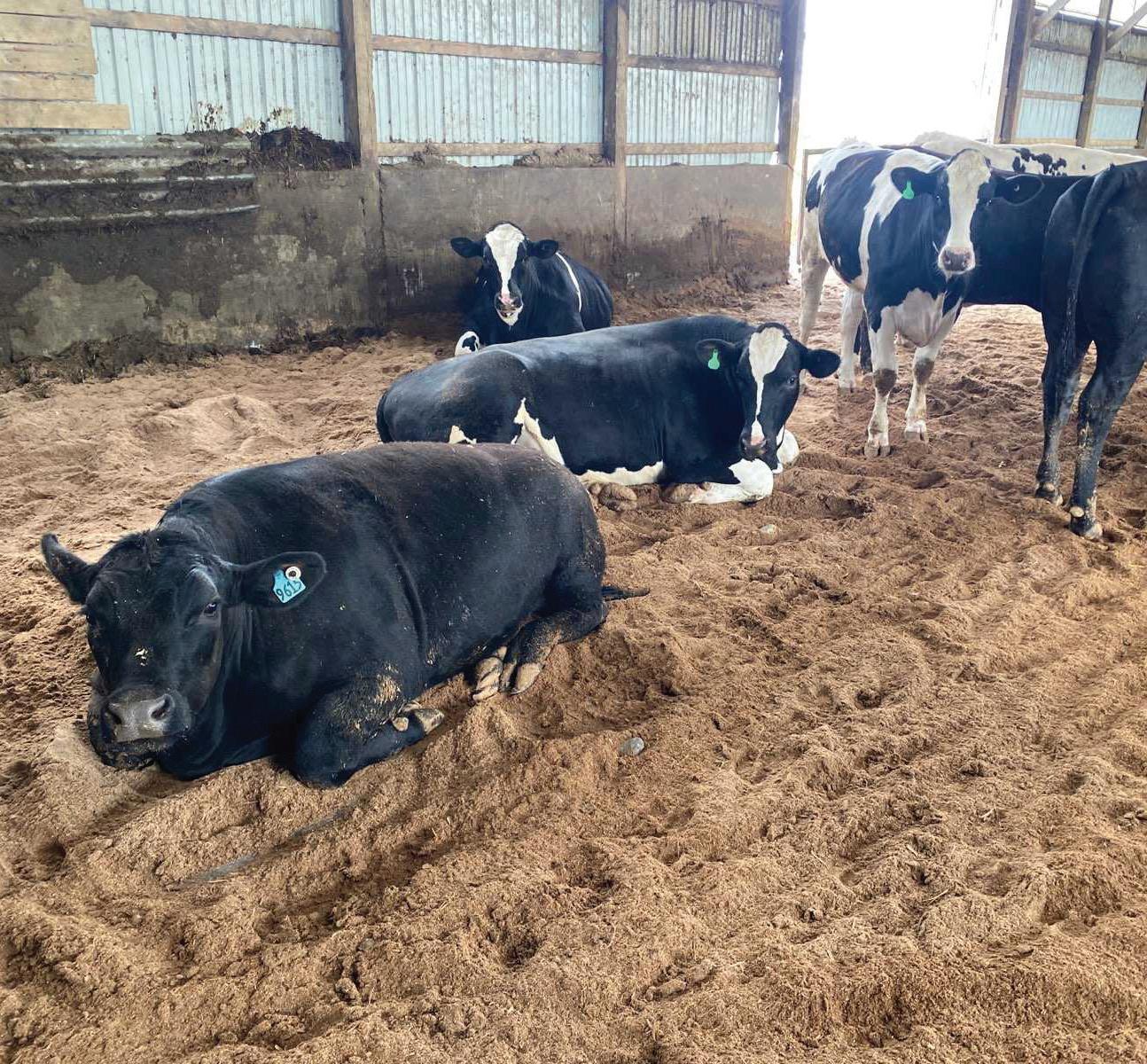 Dominic Sevilla Staff writer
Dominic Sevilla Staff writer
Cody Tyrrell, a cattle farmer in the Ubly Area, took time out of his day to talk about what life is like on his farm.
Growing up, Tyrrell worked the farm with his parents and five sisters. After going to Michigan State University for a few years Tyrrell decided to come back to the farm.
“I guess I always just wanted to be a farmer,” Tyrrell said. “Even as a kindergartner, I think, there was always the draw of farming.”
With the spring season coming to an end and summer around the corner, Tyrrell’s main focus is the health of the calves. With the rapid change of temperatures, he is working every day to make sure they stay healthy.
“Springtime with young calves is a constant battle,” Tyrrell said. “It’s almost like babysitting. The main issue is pneumonia. This year we’ve adjusted and started a new vaccine program for them, but we won’t really see the results for another few months.”
Tyrrell’s farm is mostly raising beef cattle. His family used to raise dairy cows, but over the years have gotten out of the dairy industry.
Cattle on Tyrrell’s family farm normally are raised over the course of 16-20 months before they are ready for processing.
His family farm also does custom hay orders and other work for farms in the area, as well as working with the Amish. Tyrrell added that recently while he was working, he received a call from a nearby farm where its cows had opened the gate and got out. He said that days like that happen and they drop everything to go out to help out and every day things change.
Recently, however, after his siblings have grown up and moved away along with the farm expanding, Tyrrell said that they are looking at re-evaluating the services and custom work they offer.
“We have been working on expanding our farm, but the only real issue that we have been facing is labor,” Tyrrell said. “We just need to adjust the custom work that we do. There is only so much we can do without the extra help.”

The 23-acre farm is located amid lush green meadows and stands of pine about 5 miles north of Hillsborough, a historic town best known as a haven for artists and writers. In 2016, Elaine Heath, an ordained United Methodist and a former dean of the Duke Divinity School, settled down here with her husband, Randall Bell, and launched a small community known as the Church at Spring Forest. Heath developed the idea of a shared life of faith while teaching in Texas, at Dallas’ Perkins School of Theology. But the idea has come into full bloom on this farm, which grows food, supports refugee resettlement and provides outdoor retreats for people in the healing professions.
“The No. 1 purpose of the farm is to foster circles of community,” said Heath, who serves as the community “abbess,” traditionally the female superior in a community of nuns, but here the pastoral leader.
“Fostering community has always been important, but especially now because our culture is so polarized,” she added. “Gathering people around food, growing food, preparing food, eating food, sharing food ‚Äî that breaks down all these barriers and assumptions people have.”
The farm cultivates 3 acres of fruits and vegetables and 3 acres for livestock. It sells vegetables and eggs through its CSA, or community supported agriculture model, in which people buy shares in advance of the growing season and then get a weekly box of produce. (Though the farm is not certified organic, it uses organic methodology, which means the land is farmed without synthetic pesticides or fertilizers.)
But it is also organized as a faith community, part of the new monastic movement that began three decades ago among lay Protestants who looked to Roman Catholic and particularly Celtic Christianity for inspiration on how laypeople could work, eat and worship as a community.
Spring Forest has four family units
living on the farm, but 16 people in total who consider themselves part of the core community, even if some live miles away. Those 16 are committed to the rule of life at Spring Forest: prayer, work, table, neighbor and rest.
The whole group gathers Monday through Friday at 8 a.m. for a 30-minute Zoom meeting, where they share concerns and read prayers they have written. Once a month there’s an in-person Saturday worship service ‚Äî so as not to compete with area churches that hold services on Sunday. The farm has no physical church building, and the service typically takes place outdoors, followed by a meal.
Along with the regulars, there are a handful of divinity school students from Duke and Perkins who serve as interns. (The church is part of the United Methodist Church’s “Fresh Expressions” initiative.)
Despite the deep Christian commitments of its core members, Spring Forest sees itself as collaborating with people from other faith traditions or no faith tradition. Grow It, the Wednesday morning program for children and parents, has no faith component. Central to the program is a group of mothers and children, refugees from Afghanistan, who have settled in the area.
Volunteers from the farm pick them up in an old church bus and bring them back to their homes. Spring Forest also provides transportation to a Friday English as a Second Language class at a nearby church.
Shaima Muradi, a Muslim woman originally from Afghanistan, coordinates the refugee outreach and serves a translator and liaison. She said the mothers appreciate the opportunity to let their children roam outdoors, connect with nature and eat a nutritious lunch. “These families don’t have any knowledge of the community and once they start coming, they feel so comfortable, they love it, and it’s no pressure, we’re all happy here,” said Muradi.
Heath was helping her Perkins students organize a shared home for a group of African refugees living in
subpar rentals in Dallas when she first got involved with alternative faith communities. She especially credits a former student, an immigrant from Kenya named Francis Kinyua, now a UMC pastor in Nebraska, with helping her establish Spring Forest after introducing her to ideas about regenerative farming wrapped around a life of work and prayer.
The farm on which Spring Forest sits was once home to a Black family whose house was set on fire in an act of racial violence in the 1960s. For that reason, Heath dedicated the piece of the land around a chimney that remained as a place of healing for different kinds of trauma, including trauma to the Earth.
Joan Thanupakorn, who lives in Durham, was at Wednesday’s Grow It event with one baby on a carrier strapped to her chest and another walking through the woods with her father. She and her husband have taken on a challenge of spending 1,000 hours outdoors this year, or about three hours a day, she said.
“It’s so nice to get some hours in,” Thanupakorn said. “And there’s not a lot of low-cost things in the area, and so it’s nice to have something that’s affordable.” (Grow It is free.)
Piotr Plewa, a visiting scholar at Duke University, came with his son, Max. He said he liked the exposure to refugee children and also the lessons about farming.
“Here kids can see that they can pick up a strawberry from the ground and eat it,” Plewa said. “There are people who think that a fruit is only good if you buy it from a store.”
Those are the kinds of lessons Heath is happy for children to learn.
Heath, whose main chore on the farm is caring for the goats, said that is the kind of learning that lies at the heart of Christianity, which she likes to practice more than to preach.
“We’re creating a deeply contemplative community that’s also very active in the world and that’s here for our neighbors,” she said. “For me, Christian discipleship is really about creating communities and helping people to love well.”

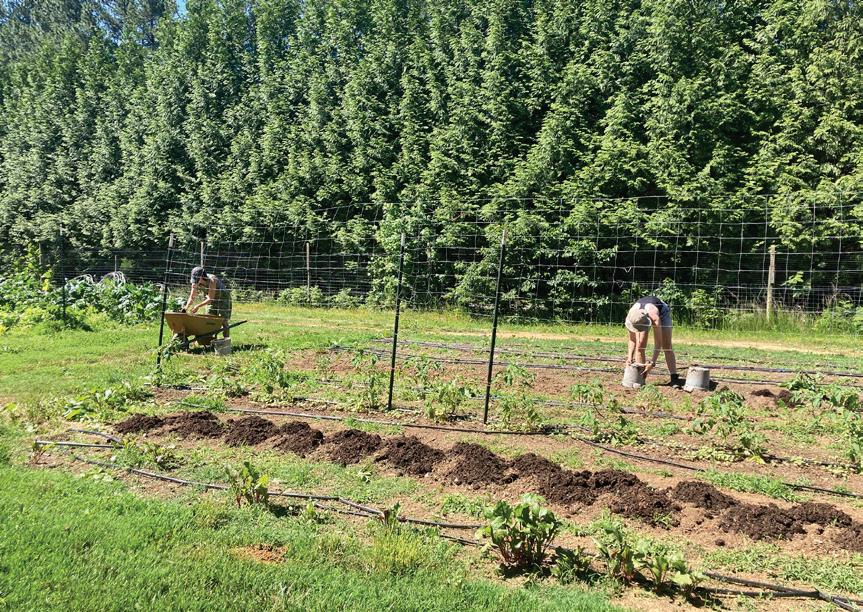
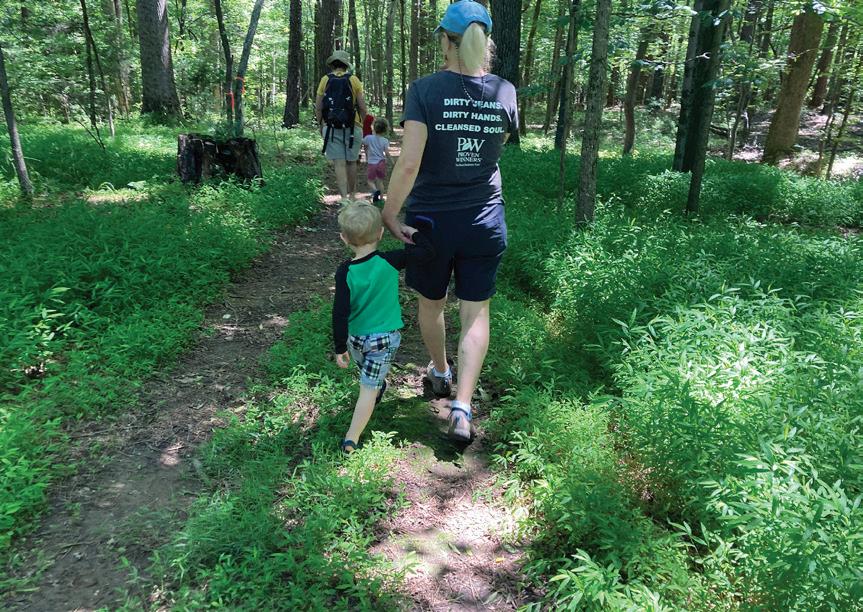

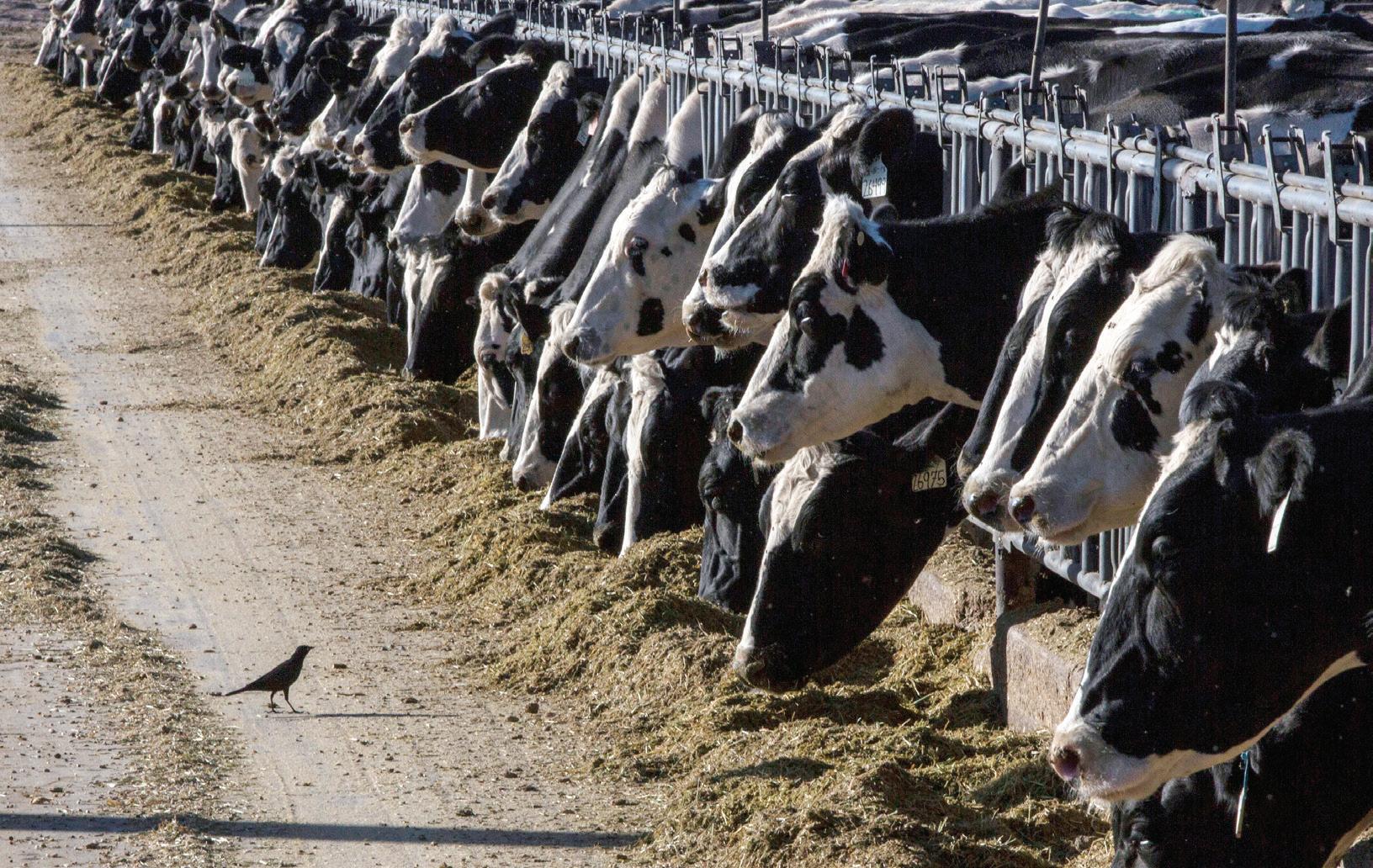
 By MiKe StOBBe & JONel aleccia aSSOciated PreSS
By MiKe StOBBe & JONel aleccia aSSOciated PreSS
Health officials say another Michigan dairy worker has been diagnosed with bird flu. It’s the third human case associated with an outbreak in U.S. dairy cows. The case was announced Thursday. This person developed respiratory symptoms, unlike the two workers, who had only mild eye symptoms. But Michigan health officials say the farmworker was quickly provided antivirals and is recovering from respiratory symptoms. Health officials say the risk to the public remains low, although farmworkers exposed to infected animals are at higher risk. The Michigan
cases occurred on different farms and there are no signs of spread among people.
Another Michigan farmworker has been diagnosed with bird flu, the third human case associated with an outbreak in U.S. dairy cows, health officials said Thursday.
The dairy worker reported a cough, congestion, sore throat and watery eyes. The other two patients had only eye symptoms, health officials said. The farmworker was given antivirals and is recovering from respiratory symptoms, health officials said.
The risk to the public remains low, although farmworkers exposed to infected animals are at higher risk, health officials said. The Michigan cases

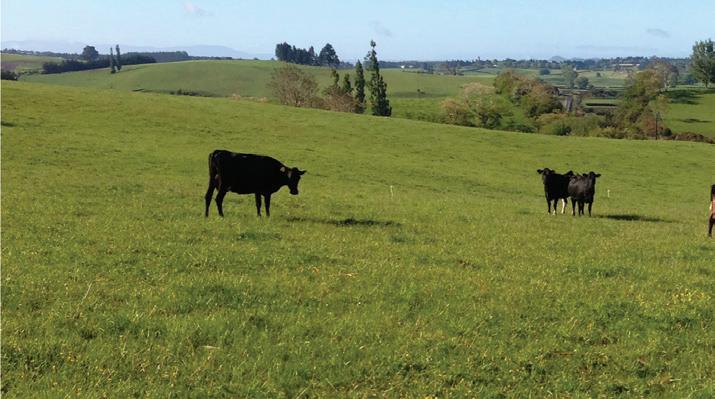
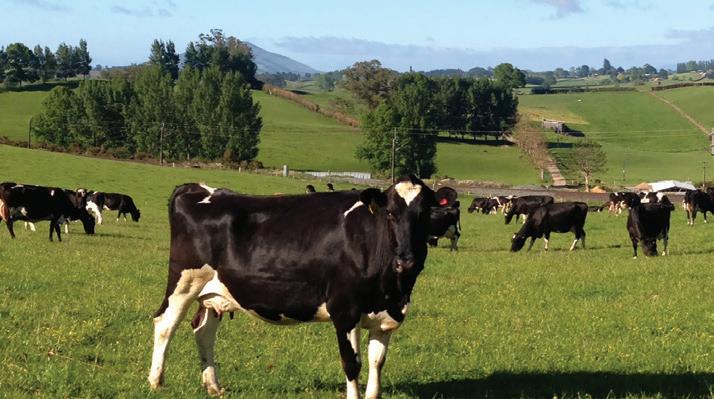
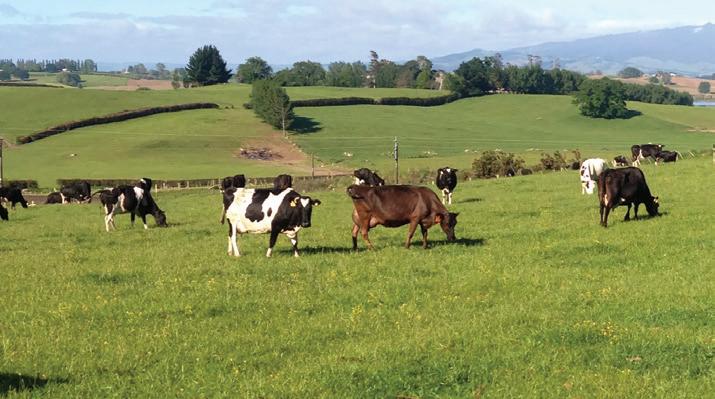
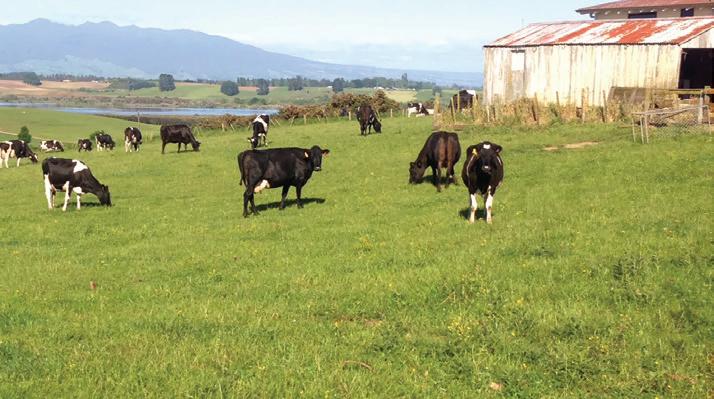

occurred on different farms and there are no signs of spread among people, officials said.
“Risk depends on exposure, and in this case, the relevant exposure is to infected animals,” the Centers for Disease Control and Prevention said in a statement.
A human case with respiratory symptoms was not unexpected — flulike symptoms have been seen in past cases of people who got other strains of bird flu from poultry. But it does raise the odds of possible spread, said the CDC’s Dr. Nirav Shah.
“Simply put, someone who’s coughing may be more likely to transmit the virus than someone who has an eye infection” he said.
In late March, a farmworker in Texas was diagnosed in what officials called
the first known instance globally of a person catching this version of bird flu — H5N1 Type A — from a mammal.
Last week, Michigan officials announced the second U.S. case. That worker developed eye symptoms after “a direct splash of infected milk to the eye,” Michigan health officials said in a statement.
Neither of the Michigan workers was wearing face shield or other personal protective equipment, which “tells us that direct exposure to infected livestock poses a risk to humans, and that PPE is an important tool in preventing spread among individuals who work on dairy and poultry farms,” Dr. Natasha Bagdasarian, the chief medical executive of Michigan’s health department, said in a statement. There are 100,000 to 150,000 workers
on U.S. dairy farms, the United Farm Workers estimates.
Many dairy workers are reluctant to wear protective gear such as masks when working with cows in “some of the wettest conditions imaginable,” said UFW spokeswoman Elizabeth Strater. The organization has called for better access to equipment such as face shields — and for more information from employers about the risk of infection on the affected farms.
“Most dairy workers are not that aware of how to protect themselves,” Strater said.
About 350 people in the U.S. have been monitored for bird flu symptoms this year, including at least 220 in Michigan, health officials said.
More than 40 people have been tested for the virus in the U.S., according


to the CDC. Numbers from Michigan health officials suggest most of them were in that state.
Since 2020, the bird flu virus has been spreading among more animal species — including dogs, cats, skunks, bears and even seals and porpoises — in scores of countries.
As of Thursday, H5N1 has been confirmed in 66 dairy herds in nine states, according to the U.S. Agriculture Department.
The new case marks the fourth time a person in the United States has been diagnosed with the virus. In 2022, a Colorado prison inmate in a work program picked it up while killing infected birds at a poultry farm. His only symptom was fatigue, and he recovered. That was before the virus was found in cows.




The last few years have seen an explosion in the popularity of cozy farming simulators. Common video game objectives like saving the world take a back seat to watering your digital plants or picking out the perfect gift for your online friend’s birthday. Today, Nintendo Switch features a bumper crop of two dozen farming games. But not too long ago, video games were synonymous with guns, gore and ghouls. So what happened to make millions fall in love with the gentler side of gaming?
Harvest Moon
Harvest Moon, released in Japan in 1996, is popularly considered the first-ever farming game. In Harvest Moon, you play as a young man who has just inherited his grandfather’s old farm. You can socialize with non-playable characters, tend to your chickens and cows and plant as many crops as your heart desires.
Today, Harvest Moon’s retro
graphics and slower pace might come across as a little clunky, but thankfully, there are about thirty sequels to discover. And despite the franchise’s age, there’s no denying the influence it has had on the beloved genre of mobile farming games. From 1996, flash forward twenty years to the 2016 release of Stardew Valley, where another young man has just learned that he has inherited his grandfather’s overgrown farm. Inspired by Harvest Moon, Stardew Valley instantly became a smash success when it was released for the PC in 2016. The game sold over one million copies in the two months following its release. In the years since, gamers have spent countless hours maintaining their virtual farms, exploring the quaint village of Pelican Town and befriending the charming local townsfolk. Shortly after Stardew Valley’s release, the game made its way to the Nintendo Switch. There, it quickly found an audience of gamers excited to take their farmstead on the go.
A day on the virtual farm
In Stardew Valley, you play a young adult who is whisked away from their life in the city to the rural village of Pelican Town. Your first days might be spent clearing away weeds and gathering tools to till the earth, but soon you’ll be welcoming your first harvest of fruits and vegetables. The action is all driven by the in-game calendar. Following the tradition of games like Animal Crossing and Harvest Moon, the days in-game progress in realtime. This means that players must make careful decisions about which crops to plant and how much time to spend exploring the forests and glades that surround the valley. Exploration gives you a great chance to gather rare crafting materials and, more importantly, to find gifts to give to your friends in town. Stardew Valley’s vibrant cast of characters is one of the game’s best features, and throughout your time playing, you’ll be unable to keep yourself from falling in love with the village
locals. If you’re tired of gardening for the day, why not hang out with Abigail, the purple-haired occultist who works at the local convenience store? Or perhaps Elliot, the longlocked poet, will pique your interest with his tender verses?
Spending more time with the Valley’s residents and bringing them the right gifts will let you learn more about the characters and their unique stories. In fact, if you play your cards right, you might even end up becoming more than friends: you can enter into a romantic relationship with many of the in-game characters.
The Nintendo Switch is the ideal place for gamers to delve into the cozy game genre. Unlike other gaming consoles, the Switch’s portable nature makes it the perfect device for playing relaxed titles. Games like Stardew Valley or Animal Crossing allow you to squeeze a couple of in-game days of playtime into the most mundane moments of everyday life. For instance, if your commute is getting you down, why not escape into the virtual world of Pelican
Town and spend some time researching new farm layouts for next year’s growing season? Or if you’re looking to unwind from a draining day, why not curl up in bed and redecorate your Animal Crossing home? Cozy games are great at offering players bite-sized tasks that don’t require you to spend hours in front of the screen to feel like you’re making progress.
Another appealing aspect of cozy games is their stark contrast to the intense, demand of action games that make up much of the gaming landscape. The enduring popularity of titles like Fortnite may be evidence that many people are interested in fast-paced, competitive gaming experiences. But the persistence of cozy series like Animal Crossing demonstrates that there’s also a passionate market demand for games with more relaxed themes. In contrast to the adrenaline associated with action-packed games, cozy games can evoke a zenlike sense of tranquility. The steady progression of the farming season and the consistent development

of in-game relationships can be a temporary escape from the numerous anxieties of modern life. In the Valley, life seems all the more serene by comparison. As a result, cozy games offer a tempting outlet for those looking for a brief vacation from the difficulties of the real world. Even if life feels like a mess, you can still log on to a game like Stardew to water your virtual plants and see them prosper under a digital sun. For many people, that is more than enough.
What’s next for farm lovers on Nintendo Switch?
Agriculture fans will be pleased to hear that Nintendo is cultivating a new batch of cozy Nintendo Switch games. Here are some titles worth keeping an eye on:
Wholesome: Out and About, an upcoming title by UK developer Yaldi Games, promises to teach players real-world foraging techniques while letting players explore a woodland environment, collect recipes and roast exotic morels over an open flame. The Garden Path, by developer carrotcake, balances a mysterious
art style with a relaxing vibe that will see players uncovering a longforgotten garden and befriending the anthropomorphic vegetables that reside within.
Botany Manor teleports players back to 1890, where you play as a botanist visiting a regal English manor who is tasked with researching exotic plants. There has never been a better time to be getting into cozy games. New titles with cute art styles, well-written characters and chill vibes are being announced daily. If you’ve just finished your Stardew playthrough and are concerned that no other game will come along to fill the void in your heart, worry not. Cozy farming titles are here to stay.
Kristen Wood is a writer, photographer, avid cozy gamer and creator of The Cozy Gaming Nook, your source for everything cozy games. Her work has been featured in various online and print publications, including Elle, Martha Stewart, Good Housekeeping, Well + Good, Chicago Sun-Times and more


